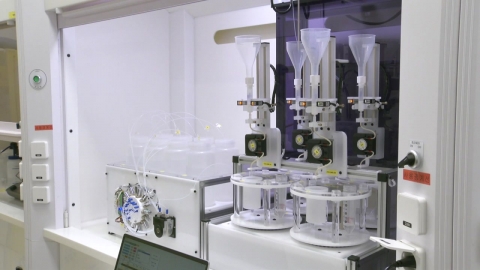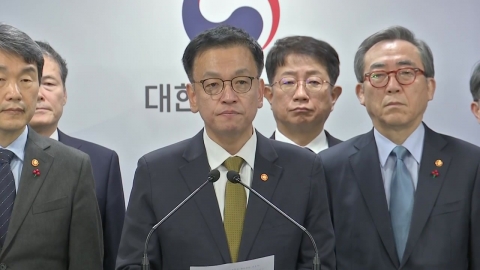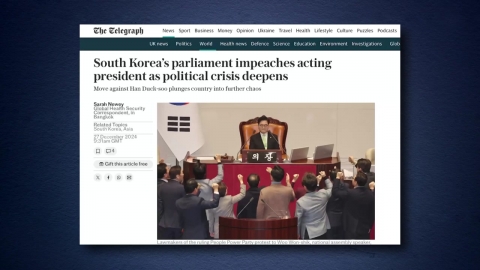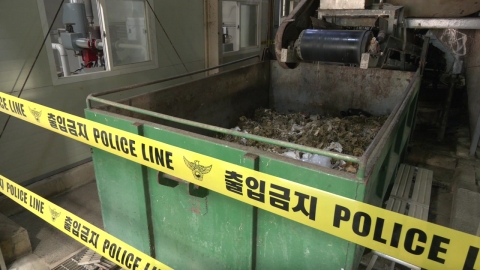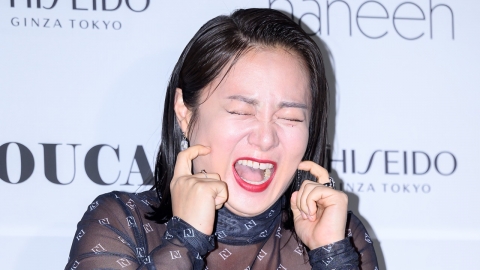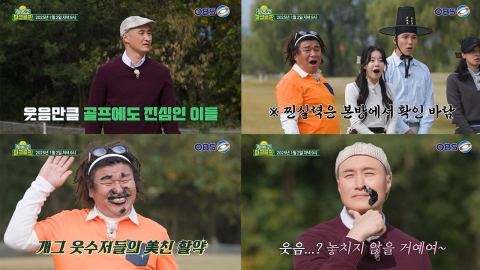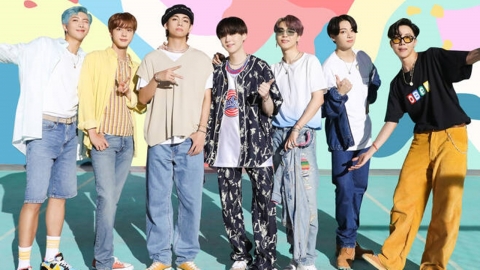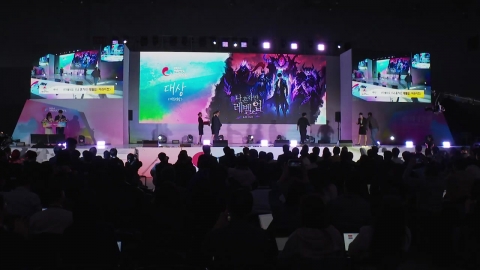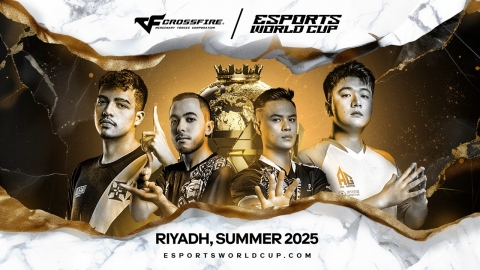■ Appearance: Kim Ki-heung, former spokesman for the presidential office, Jang Hyun-joo, vice chairman of the Democratic Party of Korea's legal committee
* The text below may differ from the actual broadcast content, so please check the broadcast for more accurate information. Please specify [YTN Newswide] when quoting.
[Anchor]
The National Assembly passed an impeachment motion against Acting President Han Deok-soo. It's an unprecedented "acting" situation, and let's look at the situation in Jungkook. We will be joined by Kim Ki-heung, former vice spokesperson of the president's office, Hyun-joo, vice chairman of the Democratic Party of Korea's legal committee. Han Deok-soo's impeachment bill was passed yesterday. People's Power lawmakers protested and protested that the source was invalid, but first, let's hear about it.
[Anchor]
Chairman Woo said, "This is the impeachment of the prime minister." How did you like it?
[Kim Gi-heung]
It wasn't Prime Minister Han Deok-soo right now. It was Han Deok-soo, acting president. Therefore, from the perspective of Chairman Woo Won-sik, even though there is a controversy over the quorum of impeachment decisions, he can do this with 151 seats. With the answer already decided, isn't the opposition party more than 190 seats in the opposition party? Of course, it's going to pass. In a way, Chairman Woo Won-sik has to hold a vote for Lee Jae-myung's Democratic Party, even though he has to resolve the conflict between the ruling and opposition parties in a situation where there is no legal dispute until the end of various controversies. Another thing is that impeachment is not the only answer to any problem.
However, impeachment is already the 29th time, and there is a saying that impeachment is commonplace. Impeachment is a very exceptional measure when there are significant violations of laws and the Constitution, and it is a contradiction that impeachment becomes commonplace, exceptional. Since this is a tragedy in the Republic of Korea, politics should be in removing and lowering conflict and uncertainty from this point of view. Given that the Republic of Korea is more confused and intensified through such impeachment, yesterday's impeachment is unfortunate for the Republic of Korea and will remain a big stain on the history of the Constitution of the Republic of Korea.
[Anchor]
If you look at Han's impeachment bill, there are five reasons for impeachment, two of which are related to his work as an acting president. So the controversy over the quorum of decisions seems to continue, what do you think?
[Jang Hyun-joo]
From the Democratic Party's point of view, it should be viewed as a comprehensive review of related constitutional academia, the National Assembly Legislative Investigation Office, and these contents and opinions. In fact, the question of whether a quorum should be followed by the president or a majority of the prime minister's office when impeaching the acting president is not a political issue or a political debate. It should be seen as a matter of legal interpretation.
However, if you look at the purpose of the Constitution, it is probably because the president is elected to prosecute the impeachment only when there are two-thirds, or more than 200 seats, in favor of the president. After all, I think the purpose of the Constitution is that the president selected by the hands of our people needs an aggravated quorum of 200 seats to dismiss and impeach President Lee.
Even if he was acting as an acting president as a prime minister, Han Deok-soo is not the president. Of course, I think the academic community is divided on whether it is necessary to apply a weighted quorum because it is not the person elected by the people. Therefore, if it is not an elected position, I think it is enough to have a quorum equivalent to the original position of prime minister. That's why I don't think that even in the case of reason, even if all of this is mixed, whether it's as prime minister or acting, there's actually no direct connection within the quorum.
However, in the end, this issue is not politically contested between the ruling and opposition parties, but now that the ball has passed to the Constitutional Court, I think the Constitutional Court will finally interpret the Constitution and the Constitutional Court will finally make a decision.
[Anchor]
When can we expect the Constitutional Court's judgment to be made?
[Jang Hyun-joo]
Perhaps this part needs to be decided within the Constitutional Court. The most urgent thing now is, of course, the impeachment trial against the president. If the impeachment proceedings against the president are delayed, the Constitutional Court seems to be considering the president's impeachment trial as the top priority right now because the ongoing chaos in state affairs is difficult to resolve and there are issues that the acting system must continue to go.
Nevertheless, the impeachment motion against Prime Minister Han Deok-soo has been handed over, so I think the contents of how to hear these parts, parallel them, or prioritize them will probably come out after review by the Constitutional Court.
[Anchor]
Now, Deputy Prime Minister for Economic Affairs Choi Sang-mok will take on all the homework, and before the impeachment, the acting role of the acting president was considered to have been minimized. Didn't you reveal it like this? If so, there are many observations that they will respond passively to various controversial appointments of constitutional judges.
[Kim Gi-heung]
Then, as lawyer Jang Hyun-joo said, acting Choi Sang-mok is not an elected office, right? If it's such a logic, wouldn't it be inevitable to say that it would be appropriate to exercise some authority to take the least measures? And even though Acting President Han Deok-soo, who was the acting president before him, asked the ruling and opposition parties to gather a single opinion on the appointment of a constitutional judge in this regard in accordance with the Constitution and law, it was not done, but it was not done. I think it would be a little difficult for me to do what the opposition party says without such political interests or political discussion. And most of all, the hearing on the impeachment of the president, it should be done first, but it's not going to end in a month or two. However, is that right regarding the impeachment of acting authority Han Deok-soo, and isn't it an urgent matter regarding that part of the acting authority dispute and the provisional disposition for suspension of effect?
That part should be done in parallel by the Constitutional Court and the provisional injunction is usually within a week, but it is a very serious case compared to other cases, so I think it can take two to three weeks. But in this regard, for example, isn't the opposition saying they will continue to impeach if it doesn't go as they want?
So who are the people who can cut this off? It's important to try to agree on the opinions of the ruling and opposition parties, but I think the reason for the impeachment, which the Constitution is overused, will be rejected when it is rejected. Not many people think it's a quote. However, the opposition party has been exploiting the issue of suspension of duties. For the Constitutional Court, even if it is to cut off such repeated mistakes, it can be seen that it is an important act to lower the current confusing situation to quickly take a position on the provisional disposition for suspension of effect.
[Anchor]
The Democratic Party continues to foreshadow impeachment anyway, so I asked you a question beforehand.Ma's acting role as acting chief is very limited, how do you interpret this part?
[Jang Hyun-joo]
First of all, I think it's a principled position. Most of the legal profession argues that the position of acting as an agent has a part of maintaining the status quo and that there is no authority to change the status quo. So I think I'm talking about this principle.
Nevertheless, the right to appoint the three constitutional judges in question is actually recommended by the National Assembly, so the actual right to appoint lies with the National Assembly, and the formal right to appoint as an acting president. So, because it is a role that only approves the appointment of the National Assembly, most academia and even the Constitutional Court say that the right to appoint can be exercised. This is not a political issue. In fact, if the Constitution has the authority to interpret the final constitution, even the Constitutional Court says that the acting president can appoint judges to these three, but it is difficult for me to understand why it is delaying this. There are concerns that continued impeachment could paralyze the function of the state, but I think the bigger concern is that the function of the Constitutional Court will be paralyzed. Even now, there are only six people in the Constitutional Court. Since it is 6 out of 9 people, it is possible to judge with these 6 people, but there is also a debate over whether it is possible to be sentenced. In addition, two of those six people will expire on April 18th next year. Then it'll be a four-person system. In fact, when the Constitutional Court becomes a four-member system, its function is paralyzed from then on. Then, in the worst case, the impeachment proceedings could be inconclusive, and the acting system could be established until the end of Yoon Suk Yeol's presidency. Is it really in the national interest to leave this national uncertainty and confusion as it is? For this reason, I think that the fact that the acting president is not appointing a constitutional judge is itself a dereliction of duty.
[Anchor]
Let's also look at the investigation. The prosecution indicted former Defense Minister Kim Yong-hyun. The contents of the indictment are quite shocking. At that time, the president's orders to commanders of the martial law army deployed to the National Assembly were made public. There is also a content that says to break the door and pull it out even if you shoot a gun. Crush the door open with an axe. It is said that this expression came out. How did you like it?
[Kim Gi-heung]
Regarding martial law, and didn't the president make several public statements? In this regard, the part that the president kept talking about over and over again talked about the problems of the National Assembly and the opposition in a way. He used the expression "devil" in a strong tone, but he said he didn't mean to do a physical event in that area, but to warn him. And he said that the military and police were in order to maintain order. In light of what we're talking about in the investigation stage and what the prosecution said yesterday during the prosecution's indictment, doesn't it mean that the president gave a very specific word to the field commander through the non-Phone? In this respect, it is true that there is a great deal of distance from the maintenance of order or warning that the president has talked about so far.
Therefore, the current situation does not reflect the president's position, does it? So, I don't know how the president will conduct the summoning investigation, but if his position is different from what the prosecution has announced so far, he needs to clarify the truth to the public. And since this is the most important key point in whether martial law belongs to or does not belong to the so-called rebellion, I think it's important for the president to preemptively make a position on any level, whether through an investigation.
[Anchor]
What do you think of the part where statements that contradict the contents of the president's statement continue to appear?
[Jang Hyun-joo]
In the meantime, related statements have been poured out of the National Assembly through military commanders and police leaders. It was very shocking at the time, but I think the impact of the public is actually on a different level if the prosecution prepared an indictment after investigating these parts to some extent and said that the contents were contained. There are actually two issues, as well as contradicting the president's statement.
In the end, from March this year, the minimum emergency martial law was planned, and the other shocking thing is that the president ordered the use of force, such as shooting a gun or using an axe. I think it should be seen that not only
but also politicians have been found to be true to some extent about the arrest group. If this is the case, I think that the investigation has been completed to some extent in charging and proving rebellion against the prosecution and the investigative agency in the future. At least, if these contents are included in the indictment and the indictment is made based on these contents, the indictment is not a document that can be used without any basis. Of course, there will have to be statements from the people involved, and that statement alone will not make a written indictment. Of course, the indictment is written after various cross-verification of whether the statements are objectively consistent, so the president and Minister Kim Yong-hyun will deny these parts and fight for innocence, but if the heads of the military and police involved continue to make the same statement, I think the investigative agency will proceed with the investigation faster and faster.
[Anchor]
Former Minister Kim Yong-hyun said he would respond legally to the posting of photos of the dispatch group's group chat room and weapons such as baseball bats in the prosecution press release, but would this be a legal problem?
[Jang Hyun-joo]
First of all, perhaps former Minister Kim Yong-hyun's side is concerned with the prosecution's Japaneseism. Proof of prosecution Japaneseism means that when the prosecution files a prosecution with the court, only a prosecution must be issued. To put it simply, it is a principle that evidence without evidence should go directly to the presiding judge and not allow the court to have a prediction. So, as those who saw the press release yesterday know, there are pictures such as cable cars. It is read as if this is a violation of Japaneseism in the indictment.
However, since the prosecution must have prepared for this, it is necessary to check what is contained in the indictment, not the actual press release. In addition, Kim Yong-hyun's side, various statements, as well as instructions on the use of force that the president told him to use a gun or an axe, are contrary to the facts. Therefore, it is also said that we will take legal action for defamation. Therefore, I think these parts will be covered in court if actual accusations are made and legal action is taken because these parts will be sharply contested in the future trial process.
[Anchor]
Contrary to the president's opinion, the prosecution seems to have concluded that emergency martial law was a riot for the purpose of national constitution.
How do you see it?
[Kim Gi-heung]
What the president said when he declared the emergency martial law was not a wartime incident, but it is a national emergency.
That's how it was defined. If you look at the opposition party's continuity so far, there have been 29 impeachments. After that, there were numerous special prosecutors, and above all, in terms of the reduced budget, the function of the state and the function of the government were neutralized. Then, in order to warn you about this, I defined it as the authority that I could use, the constitutional decision as the president's authority, and the act of high governance.
But looking at the precedents so far, doesn't it mean that if there is an illegal situation, some judicial review can be conducted? In that respect, the prosecution's investigation has been conducted, and above all, the declaration was made by the president in a series of martial law situations, but since it was former Minister Kim Yong-hyun who wrote a proclamation and suggested it, it is hard to deny the relationship with the president about various things that came out through his conspiracy. That's why the president as the head of the country is indicated as the head of the civil war. And as we mentioned earlier, the first was whether martial law could be declared, and the second is when we neutralized the constitutional institution, which neutralizes the Constitution, and we give two examples: the National Assembly and the NEC, right?
In that respect, when looking at the series of situations that come out through the prosecution investigation and the investigation of the Senior Civil Servant Corruption Investigations Unit, there was clearly a physical action, followed by an arrest group. From that point of view, the former minister Kim Yong-hyun's indictment, if there is a personal arrest of the president, has effectively defined the president, which is the peak of the civil war in becoming the president.
[Anchor]
In this situation, the president has to actively defend himself, so didn't the Senior Civil Servant Corruption Investigations Unit announce a third summons for President Yoon tomorrow? I've notified you of the summons, but it seems highly likely that you won't be present.
[Kim Gi-heung]
I think there are two aspects. The first is that the president feels the need for martial law, but this is not the so-called corruption caused by the fault of ordinary individuals, is it? That's what you think. This is a high degree of governance. And it is the only solution to solve this situation, so if I do it through the prosecution or the Senior Civil Servant Corruption Investigations Unit, there is no choice but to have a so-called Gap relationship when there are those who ask questions and those who answer. You have the initiative in asking questions. Then, you can't talk about what you want to say, the inevitability and urgency. So, when you ask a question, if you talk in a short answer type, you may distort your position as the intention of the investigative agency.
That's why I tend to deny it. On the contrary, through the Constitutional Court, I can do my thoughts equally in a public position. In fact, in the space of the Constitutional Court, I believe that there will be a political struggle. Apart from the legal dispute, this means that he will say what he has to say to the people because he saw it as a highly political act. However, if you go into the investigation of the Senior Civil Servant Corruption Investigations Unit, there are limitations to your own writing, but there is also a possibility of personal arrest, so it seems unlikely that you will respond to the summons tomorrow.
[Anchor]
The president claims that the Senior Civil Servant Corruption Investigations Unit does not have the right to investigate the president and that the Senior Civil Servant Corruption Investigations Unit is conducting an illegal investigation. Do you think it's controversial?
[Jang Hyun-joo]
It seems that it can be interpreted that the Senior Civil Servant Corruption Investigations Unit has the right to investigate. According to the Senior Civil Servant Corruption Investigations Unit Act, it is said that they have the right to investigate directly related crimes, and it seems that many people can investigate the crime of rebellion as a crime related to abuse of authority. In particular, the Senior Civil Servant Corruption Investigations Unit does not conduct the investigation alone, but the investigation is conducted together in a collaborative book formed by the police and the Ministry of National Defense, so there seems to be no big problem with the investigation right. In particular, the request for subpoena itself is illegal because it is interpreted that the president is responsible for some of the parts that have not been delivered with the best efforts of the Senior Civil Servant Corruption Investigations Unit.
If so, the request for subpoena on Sunday and tomorrow is actually because the president's security issues allow him to vacate the building only on public holidays. Despite this level of consideration, if the president does not respond to the request for the third summons, of course, the Senior Civil Servant Corruption Investigations Unit and the Joint Chiefs of Staff will conclude that they have no choice but to proceed to a forced investigation. If we don't proceed to a forced investigation even after the third summons, I think we can talk about equity with the general public. In the case of ordinary defendants, it is a common procedure to secure recruits by requesting an arrest warrant if the request for a third summons does not come out unfairly.
Nevertheless, it is not a general crime but a rebellion charge, but he does not request an arrest warrant even though he did not comply with the third summons request. This could lead to unfair disputes, so as a collaborative copy and the Senior Civil Servant Corruption Investigations Unit, it is expected to strongly consider requesting an arrest warrant if it does not come out this time.
[Anchor]
The trial of the president's impeachment trial has also begun. Yesterday, the first hearing preparation date was held, and President Yoon raised the issue of the speed of progress. I prepared a recording of this part. I'll listen to it for a while and come back.
[Anchor] You may have heard
, but the president pointed out that it's too rushed. The Constitutional Court said that it is right to do the most urgent and quick case first. What do you think?
[Kim Gi-heung]
In some ways, the Constitution is different from criminal proceedings that protect the rights of the accused. So, of course, I didn't talk about this explicitly, but rather than the president's right to defend, I think there's a strong request from that side to do it according to our time schedule and time table. However, the Constitutional Court has some concerns about this, but isn't there one more impeachment?
The Constitutional Court or the 9 appeared. I think I'll be worried about this part. Anyone can see that the impeachment hearing of the president should come first. Since there are concerns about the impeachment trial and the provisional injunction on the suspension of validity of acting Han Deok-soo, the six members of the Constitutional Court may think that the case should be conducted in parallel or related to the acting Han Deok-soo's system should be conducted sooner. If so, the president's hearing on the Constitutional Court was unintended in a way due to the Democratic Party's strategy, but there is a possibility that it will be delayed.
[Anchor]
How about this part? The Constitutional Court said that the Constitutional Court continues to communicate with the media, but not long ago, the hearing is possible with a six-member system. When I asked if it would be possible to sentence him, he changed his words slightly, saying he was still reviewing it.
How do I look at it?
[Jang Hyun-joo]
So there is a little difference between the hearing and the sentence. According to the original Constitutional Law, there were originally nine constitutional judges and seven participated in the examination for impeachment, and if there are six cited opinions, impeachment is cited. However, as you know, there are six constitutional judges now, and the Constitutional Court's position is that it is possible to examine six people now due to the provisional injunction citation.
However, I think the Constitutional Court will also have a lot of concerns about this because it is a separate matter of whether six people can be heard, but whether six people can be sentenced. Therefore, for the Democratic Party and for the opposition party, it is necessary to prevent the functioning of the Constitution from being paralyzed. In this situation, if even two judges of the Constitutional Court resign due to the expiration of their terms, it will be a four-member system. At that time, the function of the Constitutional Court is paralyzed and everything is bound to stop. If that happens, it will actually be beneficial to no one in the ruling and opposition parties and to the people and to no one in our country. That's why the appointment of three constitutional judges should be completed as soon as possible. I think the Constitutional Court will be able to handle all the cases related to the constitutional trial that are currently pouring out only when the system of nine people is restored.
[Anchor]
As it became an acting situation, I took a closer look at the situation of Jungkook, who fell into clock zero. Kim Ki-heung, a former deputy spokesperson for the president's office, and Jang Hyun-joo, vice chairman of the Democratic Party of Korea's legal committee. Thank you both for your comments.
※ 'Your report becomes news'
[Kakao Talk] YTN Search and Add Channel
[Phone] 02-398-8585
[Mail] social@ytn. co. kr
[Copyright holder (c) YTN Unauthorized reproduction, redistribution and use of AI data prohibited]
